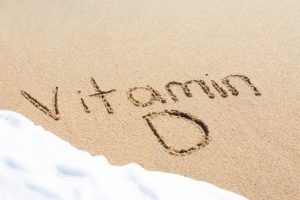
Roughly 50 percent of those over the age of 60 have diverticulosis, and the rate of cases has been steadily increasing over the last 100 years. A study by Perry AF et al suggested, “A high-fiber diet and increased frequency of bowel movements are associated with greater, rather than lower, prevalence of diverticulosis.” The Perry AD et al study included over 2,000 participants.
The researchers found that diverticulitis cases were more prevalent during the winter months and less prevalent in the summer. Dr. Lillias Maguire and senior author Prof. Andrew Chan decided to examine the role of vitamin D in both diverticulitis and diverticulosis patients. They looked at over 9,000 patients with uncomplicated diverticulosis and 922 diverticulitis patients who required hospitalization.
The researchers concluded, “In summary, we show that higher pre-diagnostic serum 25(OH)D levels are associated with a lower risk of requiring hospitalization for diverticulitis. Taken together with prior studies showing an inverse association of 25(OH)D and risk of colorectal cancer and inflammatory bowel disease, these results highlight the potential importance of vitamin D in the maintenance of colonic health. Additional studies in cohorts with more detailed information on potential confounders of this association are warranted.”
Remedies to manage and prevent diverticulitis
The purpose of a diverticulitis diet is to allow the digestive system to rest and to promote healing.
A diverticulitis diet mainly consists of liquids and soft food. In the beginning, stick to broths, juices, and water to prevent any further irritation or complications. Eventually, you can work your way up to more solid foods – which should include fiber-rich foods. It may be wise to start with low-fiber foods and work your way up to high-fiber foods to see how you feel along the way.
Studies have shown the fiber-rich foods can help manage symptoms related to diverticulitis. Recommended fiber intake is 25 grams for women under the age of 51 and 38 grams for men. For women and men over the age of 51, the recommended fiber intake is 21 grams and 30 grams a day respectively.
Fiber-rich foods include vegetables, whole grains, beans, and fruits. If you are not eating enough fiber, your doctor may recommend a fiber supplement to help give you a boost. It’s important, though, to stay well hydrated when you increase your fiber intake to avoid pain and constipation.
There are also some preventative measures you can try to lower your risk of diverticulitis.
Regular exercise, in particular, is beneficial for preventing diverticulitis because it helps keep bowels regular. Exercise also works to reduce pressure on the colon. Added pressure on the colon can lead to the formation of diverticula.
Other ways to maintain good digestive health include minimizing your intake of red meat, avoiding fatty foods, quitting smoking, maintaining a healthy body weight, responding to bowel urges, reducing your use of NSAIDs (which have been linked to diverticulitis bleeding), and staying well hydrated.
Tips to help promote healing of diverticulitis include:
- Resting your bowel – temporarily going on an all-liquid diet
- Killing off bad bacteria in the gut with oregano oil
- Re-populating the gut with good bacteria by taking probiotics
- Resolving nutritional deficiencies – talk to your doctor about multivitamin supplementation
- Detoxifying your environment – stop using toxic pans for cooking, for example
- Resolving constipation
By implementing these tips as well as following any diverticulitis treatment your doctor recommends, you can have better success in improving your digestive health while preventing and treating diverticulitis.